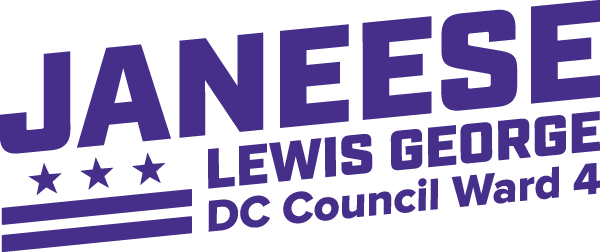Thousands of District residents will begin receiving increased food assistance this month as part of their regular monthly SNAP benefits. This $40 million increase in SNAP benefits was funded through a budget amendment introduced by Ward 4 Councilmember Janeese Lewis George to implement the Give SNAP a Raise Act that the DC Council passed unanimously in 2022 after it was introduced by Councilmember Christina Henderson. After public outcry and the threat of legal action, the Administration ultimately agreed to implement the law.
“Expanding SNAP benefits is a critical lifeline for the thousands of families in DC who are struggling with steep grocery bills, reduced federal aid, and economic hardship,” said Councilmember Lewis George. “So many of our neighbors are being forced to make impossible decisions between covering the cost of housing, utilities, groceries, transportation, and other basic needs. This increase will help them make ends meet.”
The legislation provides a 10% local enhancement to SNAP benefits for the more than 130,000 District residents who depend on SNAP. The specific increase for each SNAP recipient depends on their household size. For example, a DC family of four will receive an additional $97 in food assistance every month. In late February, residents received the SNAP increase for January and February retroactively as a separate payment. From March through September 2024, residents will receive the SNAP increase as part of their monthly SNAP benefit loaded to their EBT card between the 1st and 10th of each month.
“The most important thing we can do in our fight against hunger in DC is to make this SNAP increase permanent by fully funding it in the DC budget for Fiscal Year 2025,” added Councilmember Lewis George. “In the face of budget constraints and economic uncertainty, our budgets must prioritize the needs of our most vulnerable residents.”

